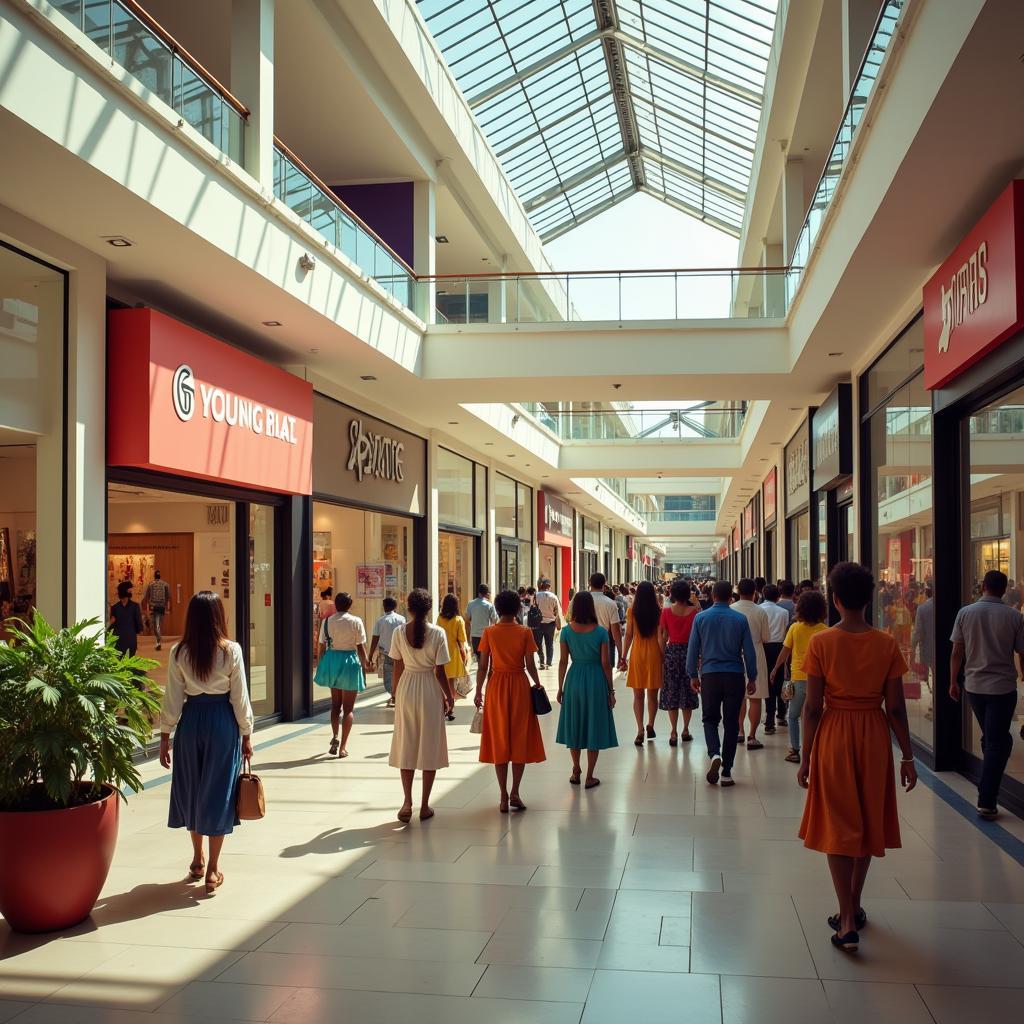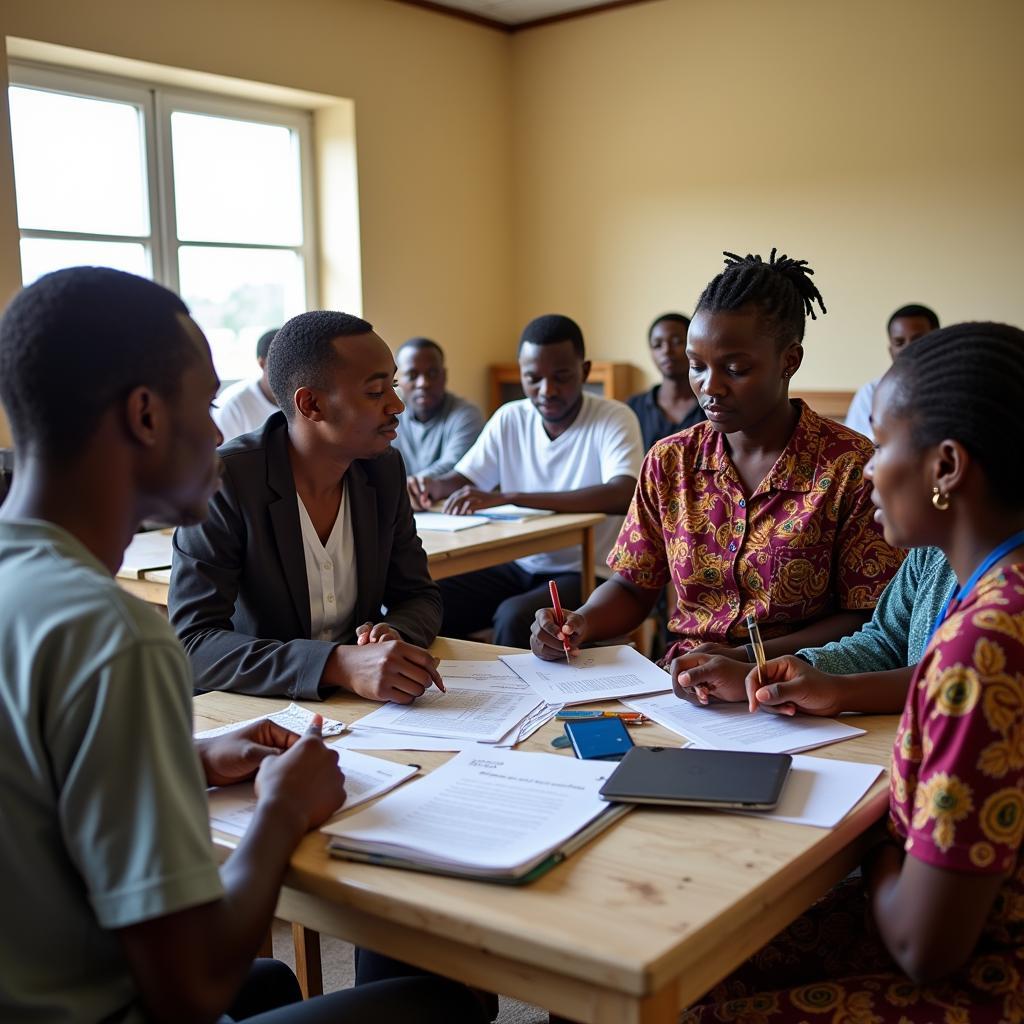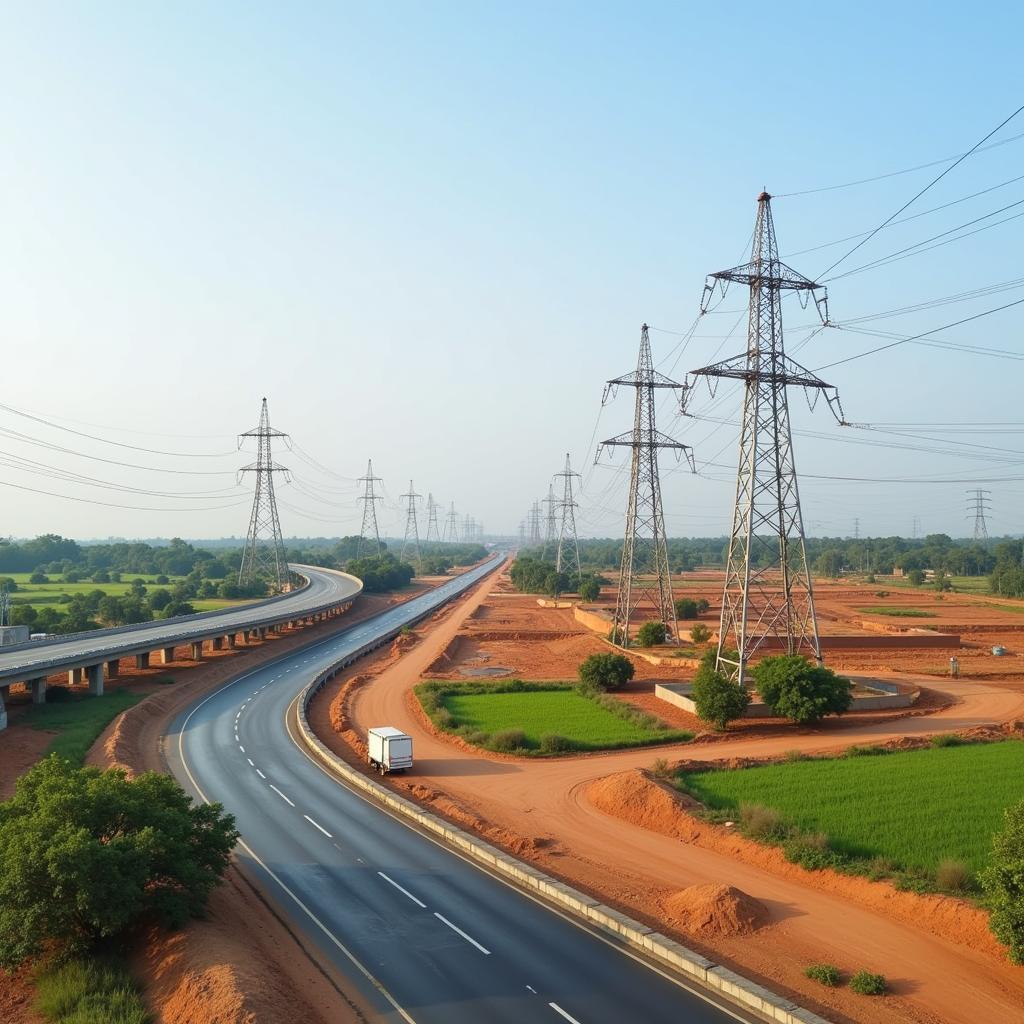The African Development Bank and the Rise of Nigeria’s Middle Class
The African Development Bank (AfDB) has identified Nigeria’s burgeoning middle class as a key driver of the nation’s economic growth. This demographic shift presents both opportunities and challenges for sustainable development in Africa’s most populous nation.
The Expanding Middle Class: A Catalyst for Growth
 Nigerian Middle Class at Shopping Mall
Nigerian Middle Class at Shopping Mall
The AfDB defines the middle class as those spending between $2 and $20 a day. This segment of Nigerian society has experienced significant growth in recent decades, fueled by factors such as urbanization, increased access to education, and a growing services sector. As incomes rise, so too does demand for goods and services, creating a ripple effect throughout the economy. This increased consumption stimulates business expansion, job creation, and overall economic activity.
AfDB Initiatives: Empowering Entrepreneurs and SMEs
 AfDB SME Workshop in Nigeria
AfDB SME Workshop in Nigeria
Recognizing the importance of small and medium-sized enterprises (SMEs) in driving economic growth and job creation, the AfDB has implemented a range of initiatives aimed at empowering Nigerian entrepreneurs. These programs provide access to finance, training, and technical assistance, enabling SMEs to thrive and contribute to the expanding economy.
One notable example is the AfDB’s $250 million credit line to Nigeria’s Bank of Industry, which provides much-needed capital to SMEs across various sectors. Furthermore, the AfDB actively supports the development of African ecommerce websites, fostering a digital marketplace that connects businesses with consumers both domestically and internationally.
Infrastructure Development: Laying the Foundation for Progress
 AfDB Infrastructure Project in Nigeria
AfDB Infrastructure Project in Nigeria
The AfDB understands that robust infrastructure is essential for sustainable economic growth. To this end, the bank has invested heavily in projects aimed at improving transportation, energy, and communication networks across Nigeria.
These investments are not only crucial for facilitating business operations and trade but also for enhancing the quality of life for everyday Nigerians. Improved infrastructure translates to better access to healthcare, education, and essential services, further empowering the middle class and fueling economic expansion.
Challenges and Opportunities: Navigating a Changing Landscape
 Nigerian Entrepreneurs in Business Meeting
Nigerian Entrepreneurs in Business Meeting
While the rise of Nigeria’s middle class presents significant opportunities, it also brings challenges. The AfDB recognizes the importance of addressing issues such as income inequality, access to affordable housing, and healthcare disparities to ensure that the benefits of economic growth are distributed equitably.
Furthermore, fostering an environment that encourages African entrepreneurship ideas and supports the growth of the private sector is crucial for sustaining this positive trajectory. The AfDB continues to work closely with the Nigerian government and private sector stakeholders to address these challenges and create a more inclusive and sustainable future for all Nigerians.
Conclusion: A Promising Future, Driven by Partnership
The African Development Bank’s commitment to fostering economic growth and development in Nigeria is evident in its multifaceted approach. By supporting SMEs, investing in crucial infrastructure, and addressing social inequalities, the AfDB is playing a pivotal role in shaping a brighter future for Nigeria’s burgeoning middle class and the nation as a whole. The AfDB believes that by working together, Nigeria can harness the potential of its people and resources to become a true economic powerhouse on the African continent.
FAQ
- What is the role of the AfDB in Nigeria? The AfDB provides financial and technical assistance to support economic and social development in Nigeria.
- How does the AfDB define the middle class? The AfDB generally defines the middle class as those spending between $2 and $20 a day.
- What are some key AfDB initiatives in Nigeria? The AfDB supports infrastructure development, promotes private sector growth, and invests in education and healthcare initiatives.
- What are the challenges faced by Nigeria’s middle class? Challenges include income inequality, access to affordable housing, and quality healthcare.
- How can I learn more about AfDB projects in Nigeria? Visit the AfDB website or contact their Nigeria Country Office for more information.
Need Help?
Contact us:
- Phone Number: +255768904061
- Email: kaka.mag@gmail.com
- Address: Mbarali DC Mawindi, Kangaga, Tanzania.
Our customer service team is available 24/7.


